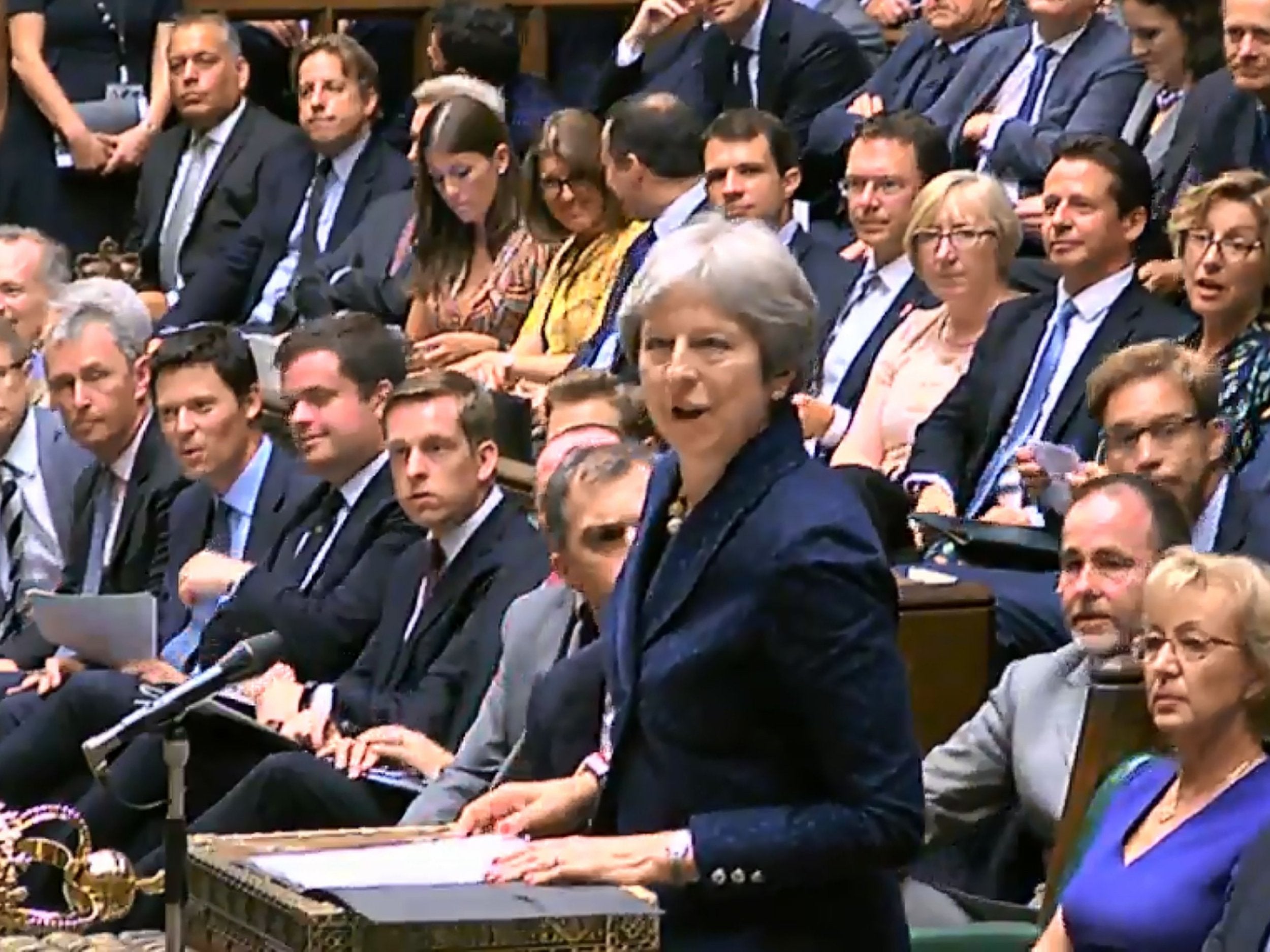If Theresa May wants to deliver a workable Brexit plan she should swallow her pride and ask for more time
The prime minister must accept responsibility for the lack of progress to date, but commit to using her government’s forthcoming White Paper as a fresh start and formally request an extension of at least one year until Brexit comes into force


A weekend, let alone a week, can be a long time in politics. After nearly two years, Theresa May saw the time was right last Friday to gather her full cabinet to form a collective view on what “Brexit means Brexit” actually stood for. Agreement seemed to have been reached but only 48 hours later the two key Brexiteer ministers resigned, claiming May’s plan betrayed the EU Referendum vote.
The current debacle throws the prime minister’s Brexit strategy into chaos, increasing the risk of Britain getting no deal and the worst possible outcome. It’s clear therefore that the prime minister must change course – acting like “nothing has changed” didn’t work for the snap election she called in which she lost her majority in parliament, and it won’t save us from falling off the Brexit cliff edge either.
Losing Boris Johnson’s support for her plans is so damaging precisely because he led the successful Vote Leave campaign that May tried to defeat. Whatever political cover she had for her Brexit strategy by keeping him in government is now gone and with it key public support. Fewer than one in ten think May’s Brexit plans are going well.
After feeling slighted by May’s reliance on civil servant Olly Robbins to discuss details of the government’s position with negotiators in Brussels, David Davis’s resignation is harmful for the prime minister for the message it sends to the EU. Let’s not forget that any deal must be agreed by the two sides by October so that each can confirm its acceptance before the March 2019 deadline.

This leaves new Brexit secretary Dominic Raab 100 days (supposedly) to conclude a nearly two-year negotiation he has not been involved in previously. It’s not how any country should conduct such seriously important talks; it makes Britain appear either unable, unwilling or ill-prepared to take back the control the public voted for.
Such a mess at home and abroad might be excusable if brought success of course. Yet May’s deal, which has evidently divided her cabinet and the country, will be dead on arrival when it reaches Brussels. Its cherry-picked benefits and costs, complete with an unworkable blueprint for overcoming customs checks and a proposal for free movement of goods but not services (which the EU has already ruled out) can make any observer wonder what exactly was the point in piecing together such a political Frankenstein that both Leavers and Remainers want to run out of town.
But the truth is that with only a few months left to go the government has finally, if amateurishly, produced a collective(ish) view about what their vision of Brexit means after all. This should have happened 18 months ago and didn’t, but we are here now. It’s a first step towards developing something more serious.
Remember too that Brexit going badly is in not in the EU’s interests either. While both sides will want to come out stronger, each is critically important to the future success of the other. Both Britain and the EU need an agreement that works.
Does this mean there should be a “People’s Vote” or re-run of the referendum? Not necessarily. The main problem right now is time, which the government does not have. As such, it needs to ask for more.
If May wants to remain in office and deliver a workable Brexit plan, she would be well advised to eat some humble pie. May should accept responsibility for the lack of progress to date, but commit to using her government’s forthcoming White Paper as a fresh start and formally request an extension of at least one year until Brexit comes into force.
The EU can agree a new date for concluding talks and it’s to their advantage that a proper deal is in place. A new Brexit deadline of March 2020 would provide more time to individuals and businesses to get ready for withdrawal, as a more serious blueprint develop.
An extension would probably be acceptable to most of May’s backbenchers, if begrudgingly. The hard Brexiters in her midst want certainty that Brexit will happen – and only a minority think it wise to crash out first for the sake of doing so and pick up the broken pieces later.
An extended deadline might also win support from Remainers in parliament. They have been especially concerned that various risks – such as to manufacturing and the wider economy – have not been properly assessed in developing the current roadmap. More time could generate greater consensus around better managing these risks.
And what of the public? It’s surely relevant that popular opinion is increasingly negative about Brexit. But yet a majority want the government to get on with it. An extended deadline by only a year is still an exit date and should be acceptable to all but an extreme minority for Brexit at any cost.
Asking for more time to get Brexit right is surely necessary at this stage and would be worth the wait – and would carry support from the EU, most of Parliament and the public. The question is only how much longer May can stay in office while so much crumbles around her.
Thom Brooks is dean of Durham Law School
Join our commenting forum
Join thought-provoking conversations, follow other Independent readers and see their replies
Comments
Bookmark popover
Removed from bookmarks